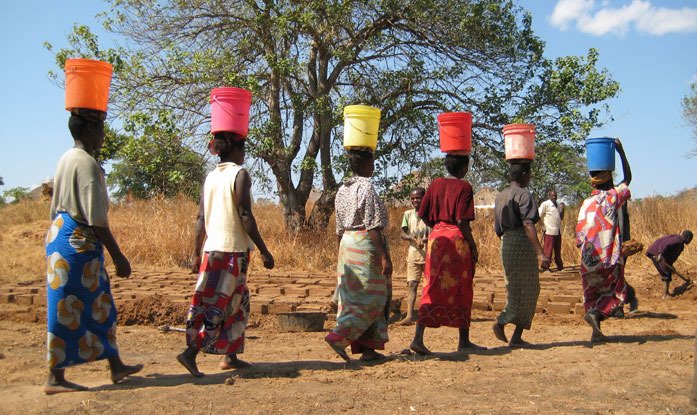
Women have borne the brunt of the economic devastation caused by the COVID-19 pandemic, and here in Africa where women make up 58 per cent of the self-employed population, women-owned businesses have been particularly sensitive to repeated shocks and crises. The pandemic has threatened the fragile gains made in recent years towards gender equality by reinforcing and multiplying the precarious situations that women face. Added to these are the consequences of climate change and the war in Ukraine which have further exposed the vulnerabilities of women in Africa. If things stay at the current pace, it would take another 98 years to end gender inequality in sub-Saharan Africa. We cannot wait any longer.
To reverse this trend, we need to focus on three key areas for coordination. One of the areas is representation. Women’s voices must be heard in political discussions, peace-keeping processes and decision-making. Another area is rights; which means having egalitarian laws that protect women and girls. Finally, the third key area for coordination is allocating adequate resources, including financial measures, to translate state commitments into action and ensure women’s economic empowerment. The UN Women and the Bill & Melinda Gates Foundation have been committed for many years in supporting this progress in partnership with women and men in Africa to build a more equal, peaceful and economically vibrant society.
In many African countries, women continue to be excluded from decision-making spheres. While the representation of women in parliaments has increased overall, and is a positive development, there are still countries in West and Central Africa where women represent less than 5 per cent of parliamentarians.
Quotas have proven to be an effective way to increase women’s participation in politics. Ten countries out of 12 in West and Central Africa now have such laws. For instance, Cape Verde passed a law on parity in 2019, and the number of women elected in local elections rose to 41.5 per cent in 2020, up from 26 per cent in 2016. This is an example of success that must be urgently duplicated on the continent as the political representation of women in large countries like Nigeria and Democratic Republic of Congo remains low. It is imperative that we continue on the path of legal and political reforms to endorse these known practices that work.
The Maputo Protocol, adopted in 2017, provides a legal framework for the protection of women’s rights in Africa, and African states have made significant progress toward achieving its goals, including the creation of dedicated ministries and institutional mechanisms to promote these rights. However, limited access to education and employment for African women reduces the annual per capita growth by 0.8 per cent. This level of growth would have allowed the size of African economies to double in 30 years. In Niger, for example, the World Bank estimates that per capita GDP would be more than 25 per cent higher if gender inequality is reduced.
Thirty years after the Beijing Commitments made by the international community, and the Maputo Protocol for gender equality and the promotion of women’s rights, it is urgent that today, on African Women’s Day, our African countries must take bold steps to allocate the adequate resources to spur women’s autonomy and self-determination. South Africa is leading the way by implementing policies and programmes to encourage and support women empowerment. At the 66th session of the Commission on the Status of Women, the South African Minister of Human Settlements, Ms Mmamoloko Kubayi-Ngubane, highlighted three tangible policy examples, including the “Techno girl” programme to support girls wishing to pursue scientific or technological careers.
It is time for action if we want to realise the aspirations of Agenda 2063, Africa’s strategic framework for achieving its goal of inclusive and sustainable development. As the pandemic recedes, it is imperative that women and girls are placed at the forefront of all recovery efforts. Women must be included in economic recovery plans and their health prioritised. Gender equality is of economic, political and social importance to all of us. Without it, gender disparities will continue to contribute to poverty and halt the development so necessary and long-awaited by our people. As long as women and girls do not take part in decision-making processes, their future, and that of everyone in Africa, will continue to be mortgaged.
- Rachel Toku-Appiah is Programme Advocacy and Communications Director, Africa; Oulimata Sarr is UN Women Regional Director for West and Central Africa





